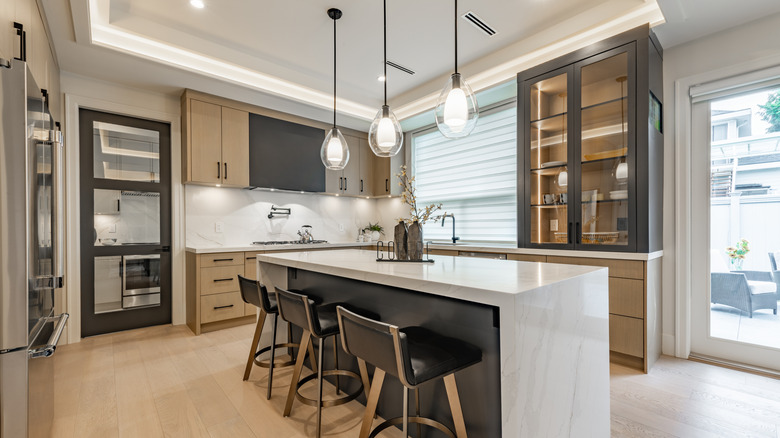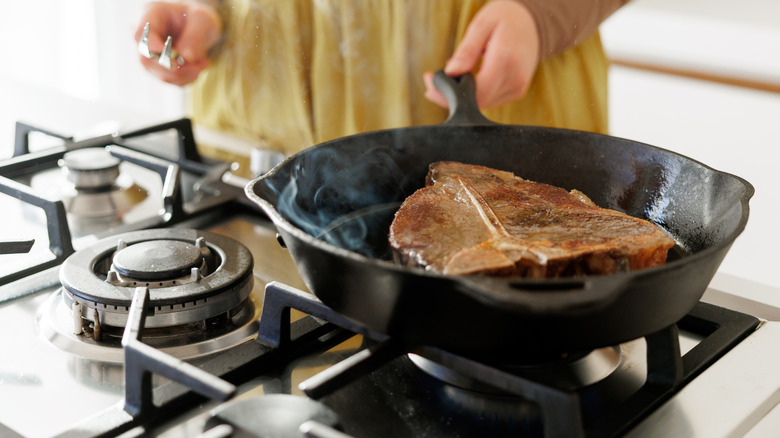The Controversial Kitchen Appliance May Actually Boost Home Value
One particular kitchen appliance is responsible for more "which is better" discussions than almost all others. Sides are taken, flags are planted, and earnest opinions are soundly defended. It's not about what settings to use on the dishwasher or if it's okay to make pizza dough in the stand mixer. The controversial appliance in question is the humble stove. Disagreements aside, homebuyers prefer gas over electric stoves, and that preference may boost your home's value. When given a choice in an existing home or a new build, they'd rather pay more for a kitchen with this essential kitchen appliance.
Two controversies swirl around the discussion of gas stoves. The first, more benign one, centers on whether a gas or an electric stove is better for cooking. Some cooks insist gas stoves serve up the precise temperatures some dishes require for success, while others say an electric stove is fine in the hands of a skilled chef. Induction stoves muddy the conversation with their ability to instantly come to an exceptionally accurate temperature — professional chefs love them. The other controversy is more serious. In 2023, the head of the Consumer Product Safety Commission (CPSC) noted that some of the emissions from gas stoves, like nitrogen dioxide (NO2), could pose health hazards. Gas stoves also contribute to climate change because they release carbon dioxide and methane into the air. For this reason, some consumers are considering getting rid of their gas stoves.
How a gas stove could boost your home's value
According to a 2021 National Association of Home Builders (NAHB) survey, 51% of homebuyers prefer gas stoves, and 39% would rather have electric cooktops. The rest either have no preference or just don't know. Aside from the greater control over heating that gas stoves provide, some cooks prefer the flavor of foods cooked over gas. Gas stoves are generally cheaper to buy than standard electric stoves, and considerably cheaper than induction stoves. Because natural gas is usually cheaper than electricity, gas stoves are more economical to operate. Gas stoves are also more durable, and cooks can use a wider range of cookware on a gas cooktop than on a glass one. If you're selling your home, including a mention of your gas stove in the listing could pique the interest of buyers who prefer it over electric. Replacing an older stove, or one that's showing wear and tear, to give your kitchen a professional upgrade further enhances the value it adds.
Switching from electric to gas is not an easy or inexpensive proposition if your home doesn't already have a gas line from the utility, so it's highly unlikely that making the change would increase your home's value enough to make the expense worthwhile. Installing a new gas line costs $15 to $25 per linear foot, depending on your location. Add to that the expense of a new stove and any redesigning you need to do in the kitchen to accommodate the new line. But, if you already have a gas stove, a new stove combined with a kitchen refresh that includes fresh paint or a new backsplash could make your house more attractive to some buyers.

